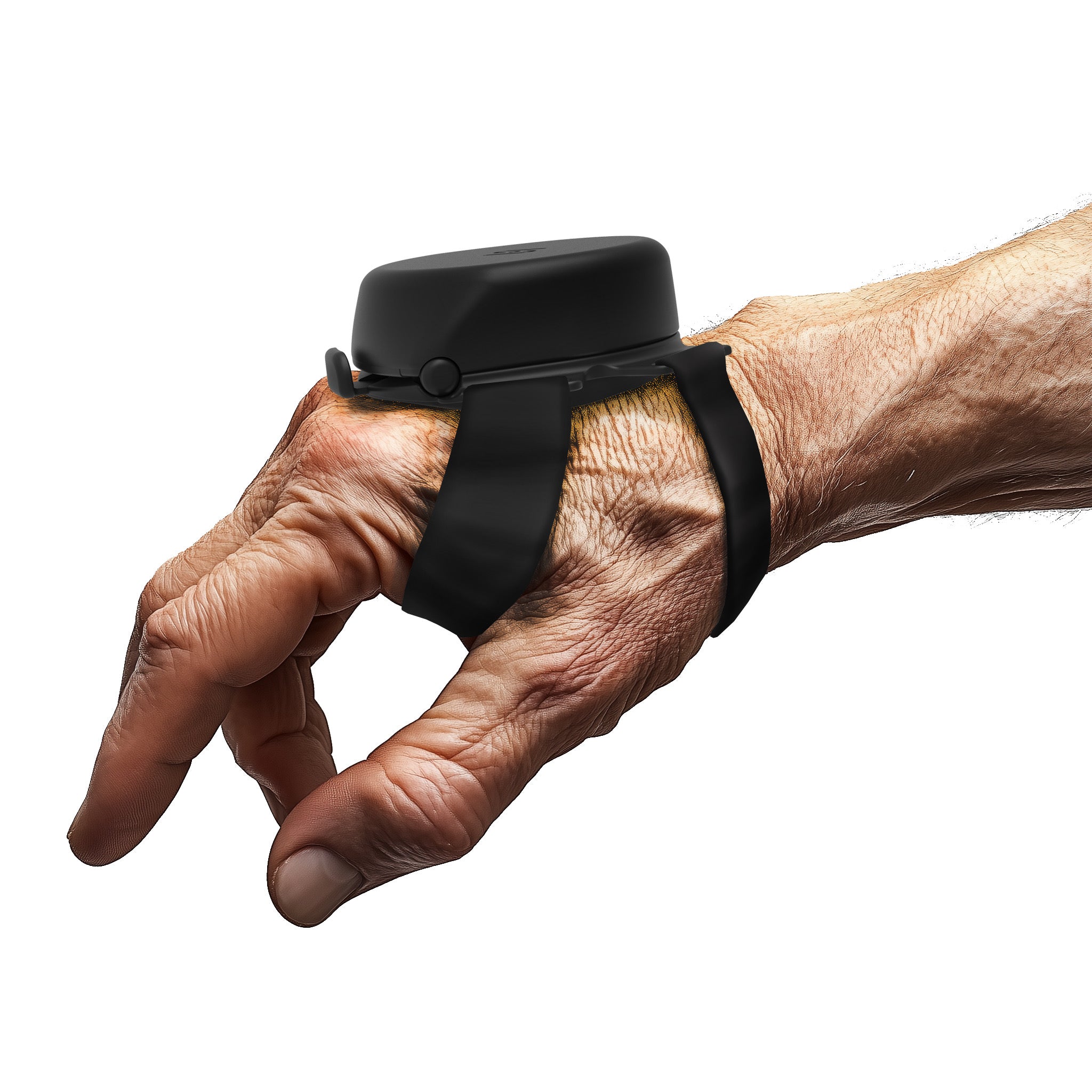Tremors can manifest as physical symptoms intricately linked with mental health conditions, underscoring the profound connection between our neurological and psychological states. Symptoms such as body shaking from anxiety, tremors triggered by anxiety, and nervous shaking illustrate this relationship, emphasizing how our mental health directly influences physical responses.
Furthermore, we explore psychogenic tremors as anxiety symptoms, stress tremors, stress shivers, and how stress can induce shivers or even panic attack tremors. Essential tremors, often exacerbated by anxiety, and the question of whether depression can cause tremors are also crucial aspects of our discussion.
This guide analyzes scientific studies and expert insights to unveil effective ways of managing these symptoms, enhancing overall well-being by achieving a balance between physical health and psychological care.
Whether you're experiencing essential tremors and anxiety, stress-induced shivers, or the intense shaking that can accompany panic attacks, understanding the underlying causes and exploring treatment options can lead to better management and relief of these symptoms.
Psychogenic Tremors Associated with Anxiety Symptoms
Psychogenic tremors, often accompanied by stress shivers, are a type of movement disorder not caused by neurological conditions but linked directly to psychological factors. These tremors are influenced by psychological stress, anxiety, or trauma. They are typically variable in presentation, can come and go, and may vary in severity during periods of emotional stress.
Psychogenic tremors are challenging to diagnose and treat because they closely mimic the symptoms of organic tremor disorders. However, they generally lack the consistent patterns seen in neurological disorders and instead correlate strongly with psychological states. For example, these tremors may intensify during heightened anxiety or stress and might significantly reduce or disappear when the individual is distracted or relaxed.
Urgent Help
Identifying symptoms that require immediate help, such as severe stress shivers, is crucial. Immediate intervention can prevent escalation. Healthcare professionals focus on stabilizing and treating symptoms to improve recovery chances.
Understanding Anxiety and Its Relation to Tremors

What is Anxiety?
Anxiety is a pervasive condition characterized by excessive worry that disrupts daily functioning. Studies show that anxiety can heighten the body's stress response, often manifesting physically as anxiety tremors and stress tremors. These are particularly evident during acute stress episodes.
What Treatment is Available?
Medications combined with cognitive-behavioral therapies and holistic approaches such as yoga and meditation have proven effective for anxiety-induced tremors. Treatments should be tailored to individual symptoms and needs.
Who Else Can Help?
Support networks are crucial in managing anxiety and tremors. Organizations like Anxiety UK offer resources and community-based support to provide relief and practical help.
How Can I Help Myself?
Engaging in routine physical activity, maintaining a healthy diet, and practicing relaxation techniques can reduce the frequency and intensity of tremors caused by anxiety.
Comprehensive Care Approaches
Neurological Insights: Understanding the Brain's Role in Tremors
Tremors caused by panic attacks offer insights into targeted treatment options. Stress and anxiety may heighten neurological responses, aggravating tremor episodes. Understanding the neurological basis of these conditions aids in developing therapies to reduce anxiety tremors.
Lifestyle Modifications to Manage Tremors
Calming the nervous system through meditation, yoga, and deep-breathing exercises can reduce stress tremors and shaking when nervous. Improving sleep hygiene, maintaining a balanced diet, and avoiding stimulants like caffeine are also important. Regular physical activity supports overall brain health and reduces tremor frequency.
Genetic Factors and Tremors
Research on genetic markers may predict conditions like essential tremor and anxiety. Understanding these links could lead to targeted therapies, enabling individualized treatment plans for managing tremors effectively.
Alternative Therapies for Tremor Management
Alternative therapies such as acupuncture and herbal supplements, like valerian root or passionflower, can help reduce tremors and stress shivers. Biofeedback therapy provides real-time feedback to aid patients in reducing tremor amplitude through self-regulation.
The Impact of Social Support Systems
Family, friends, and support groups offer emotional comfort and practical help for managing tremors. Organizations like Anxiety UK create supportive environments to share experiences and coping strategies.
Cutting-Edge Research and Future Directions
Emerging therapies such as stem cell therapy and neuroplasticity research hold promise for treating tremors. Continued collaboration between universities and industry could lead to more effective, long-lasting treatments.
The Role of Occupational Therapy in Managing Tremors
- Adaptive Strategies: Teaching patients to use adaptive devices for writing, eating, or dressing.
- Motor Skills Training: Exercises to improve hand-eye coordination and reduce tremor impact.
- Environmental Modifications: Making home and workplace adjustments for safer interactions.
Pediatric Considerations: Tremors in Children and Adolescents
- Diagnosis and Treatment: Tailoring treatments to younger patients to suit developmental needs.
- Impact on Development: Understanding how tremors affect motor and social milestones.
- Support Structures: Engaging family, educators, and pediatric specialists for holistic management.
Advancements in Pharmacological Treatments
- Targeted Drugs: Developing medications to manage tremors effectively in psychiatric conditions.
- Personalized Medicine: Using genetic insights to tailor treatments to individual needs.
- Combination Therapies: Integrating pharmacological and psychological treatments.
Mindfulness and Meditation: Deepening the Connection
- Stress Reduction: Mindfulness decreases stress, reducing tremors.
- Increased Focus: Meditation enhances calmness, aiding symptom control.
- Long-Term Benefits: Regular practice improves overall mental and physical well-being.
Can Depression Cause Tremors?
Depression can cause tremors, often as a physical response to psychological distress. These psychogenic tremors arise from disruptions in the nervous system and may also result from medication side effects. Consulting healthcare professionals ensures proper diagnosis and comprehensive care.
Partner Spotlight: Steadiwear and Tremor Management

Steadiwear offers non-invasive solutions, such as the Steadi-3 glove, to manage tremors and stress shivers. This innovation provides immediate relief without pharmaceuticals, enhancing quality of life for individuals experiencing tremors due to anxiety or stress.
Conclusion:
The complex relationship between tremors and mental health challenges underscores the need for integrated treatment strategies that address both the psychological and physiological aspects of these conditions. Effective management often involves a combination of medication, therapy, lifestyle adjustments, and support networks, which can significantly improve quality of life.
As research advances, promising new treatments for conditions like essential tremor and anxiety, such as neuroplasticity training and stem cell therapy, are on the horizon. These innovations can transform treatment approaches and offer more excellent relief to those affected.
Moving forward, patients must have access to comprehensive care that leverages the latest research and holistic approaches to health. Through continued innovation and supportive care, we can better manage and potentially alleviate the complex interplay of tremors and mental health.



